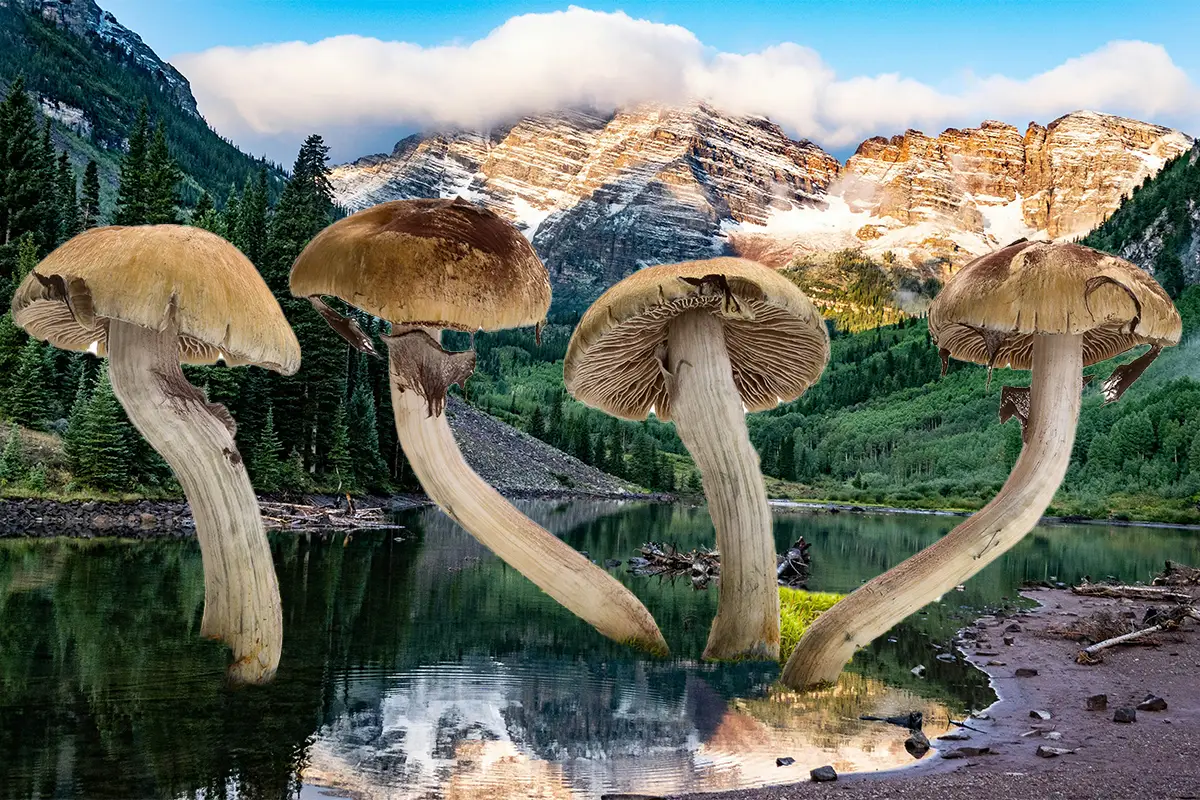Drug legalization is a fascinating experiment. It calls into focus societal systems to see how sturdy they are. Take Oregon, for instance. In 2020, it legalized the possession of all drugs. But by 2023-2024, the state made most drugs illegal again. Why? The main complaint was that “open-air drug markets” contributed to an increase in fentanyl use, which was creating a public health crisis. However, drug policy experts generally agree that the situation got out of hand because broader societal issues, such as housing and mental health services, were not adequately addressed. Legalizing small amounts of all drugs put Oregon’s local systems to the test — and they cracked under the pressure. Is Colorado destined for the same fate as the Beaver State?
The Reason Foundation, a libertarian think tank founded in 1978, took a temperature check on how Colorado is faring after Proposition 122 was passed, which effectively legalized psychedelic therapy and decriminalized the possession of naturally occurring psychedelics, including psilocybin mushrooms, ayahuasca, ibogaine, and mescaline-containing cacti (except peyote).
In May 2023, the foundation released “early data” indicating that concerns about harm and public safety risks were unfounded. Since May 2023, the Reason Foundation team has continued to collect data and interview hospitals and law enforcement agencies to assess the occurrence of harm.
“Interviews and public datasets have not shown a noticeable spike in either crime or hospitalizations,” the Reason Foundation wrote in its 2024 report.
READ: “Quasi-Therapeutic” Use of Psychedelics Could Increase Harm, Says World Drug Report
Prop. 122 technically has not gone into effect yet. The People of Colorado approved the proposition in 2022, but regulations are slated to be implemented in 2025. The state is currently in a regulatory liminal space, but Colorado residents are not waiting for regulations to host events and plant seeds for future businesses. This also extends to psychedelic therapists who work with psilocybin.
“Proposition 122 technically allows psychedelic therapy only under a new regulatory framework of state-certified facilitators. Two state agencies, the Colorado Department of Regulatory Agencies (DORA) and the Colorado Department of Revenue, are going through the painstakingly slow process of bureaucratic meetings to construct a detailed set of rules for the training and administering of psychedelic services,” writes Gregory Ferenstien for the Reason Foundation. “Regulated therapy will be up and running sometime in 2025. But, in practice, professionals can skirt this rule by selling “harm reduction” coaching while simultaneously ‘gifting’ mushrooms—a loophole that later was explicitly protected with the passage of Senate Bill 290.”
The new law also permits gifting. The idea here is that it will make mushrooms — real psilocybin products — widely available and make “fake shroom” products being sold on the illicit market less luring, ultimately disrupting that arm of the illegal drug trade.
How to Grow Shrooms Bundle
Take Both of Our Courses and Save $90!
Learn More
Prop. 122 also allows professionals to host “harm reduction” events where they supervise psychedelic experiences. Unlike other states, where psychedelic coaches and therapists can only offer advice to clients sourcing mushrooms illegally, Colorado permits these professionals to fully support their clients by providing safe access to psilocybin.
In Colorado, the decriminalization of personal possession allows consumers to opt for lower doses. Conversely, in Oregon, where psilocybin must be administered by a state-certified therapist, even minimal doses in a cost-effective group setting can exceed $500 per session. This high cost encourages consumers to choose larger doses to ensure they get their money’s worth from the experience.
“My concern with relying too heavily on one dose is that it may cause the patient and the practitioner to feel pressured to push the dose too high, too fast. Doing this work piecemeal allows clients to be eased into the work and the medicine, without overwhelming their nervous systems,” Dr. Erica Zelfand, CEO of Right To Heal, a psychedelic retreat in Mexico, and lead educator at InnerTrek, a school for certified Oregon psilocybin facilitators, said to the Reason Foundation.
Crimes involving psychedelics are rare but often receive disproportionate media attention, affecting perceptions of policy. Psychedelics-related crimes and hospitalizations peaked in 2020 and 2021 but have since declined, with no significant increase following legalization in December 2022, according to data gathered by the Reason Foundation.
READ: Notes From the Underground Mushroom Market
In 2023, there were 278 psychedelics-related drug offenses, down from 396 in 2022 and 408 in 2020. To account for yearly fluctuations in total drug arrests, we also present psychedelics-related crimes as percentages of all drug offenses. In 2023, psychedelics made up 1.4 percent of drug-related crimes, compared to 1.96 percent in 2022 and 2.41 percent in 2020, which was the peak year for such percentages.
The Reason Foundation spoke to law enforcement agencies and hospitals in Colorado’s 10 most populous counties. Five of these 10 agencies reported no increase in crime; four had no opinion; one did not respond.
A spokesman for the Denver Police Department told the Reason Foundation in 2023 (and subsequently reconfirmed this year) that “psilocybin has not been a significant law enforcement issue in Denver either prior to or following the passage of Proposition 122.”
As Colorado becomes the focal point for psychedelic legalization, the pressure is on to get it right, especially after the whiplash of Measure 110 in Oregon, which exposed the challenges of such sweeping reforms.
DoubleBlind is a trusted resource for news, evidence-based education, and reporting on psychedelics. We work with leading medical professionals, scientific researchers, journalists, mycologists, indigenous stewards, and cultural pioneers. Read about our editorial policy and fact-checking process here.
DoubleBlind Magazine does not encourage or condone any illegal activities, including but not limited to the use of illegal substances. We do not provide mental health, clinical, or medical services. We are not a substitute for medical, psychological, or psychiatric diagnosis, treatment, or advice. If you are in a crisis or if you or any other person may be in danger or experiencing a mental health emergency, immediately call 911 or your local emergency resources. If you are considering suicide, please call 988 to connect with the National Suicide Prevention Lifeline.
DoubleBlind Mag Read More



